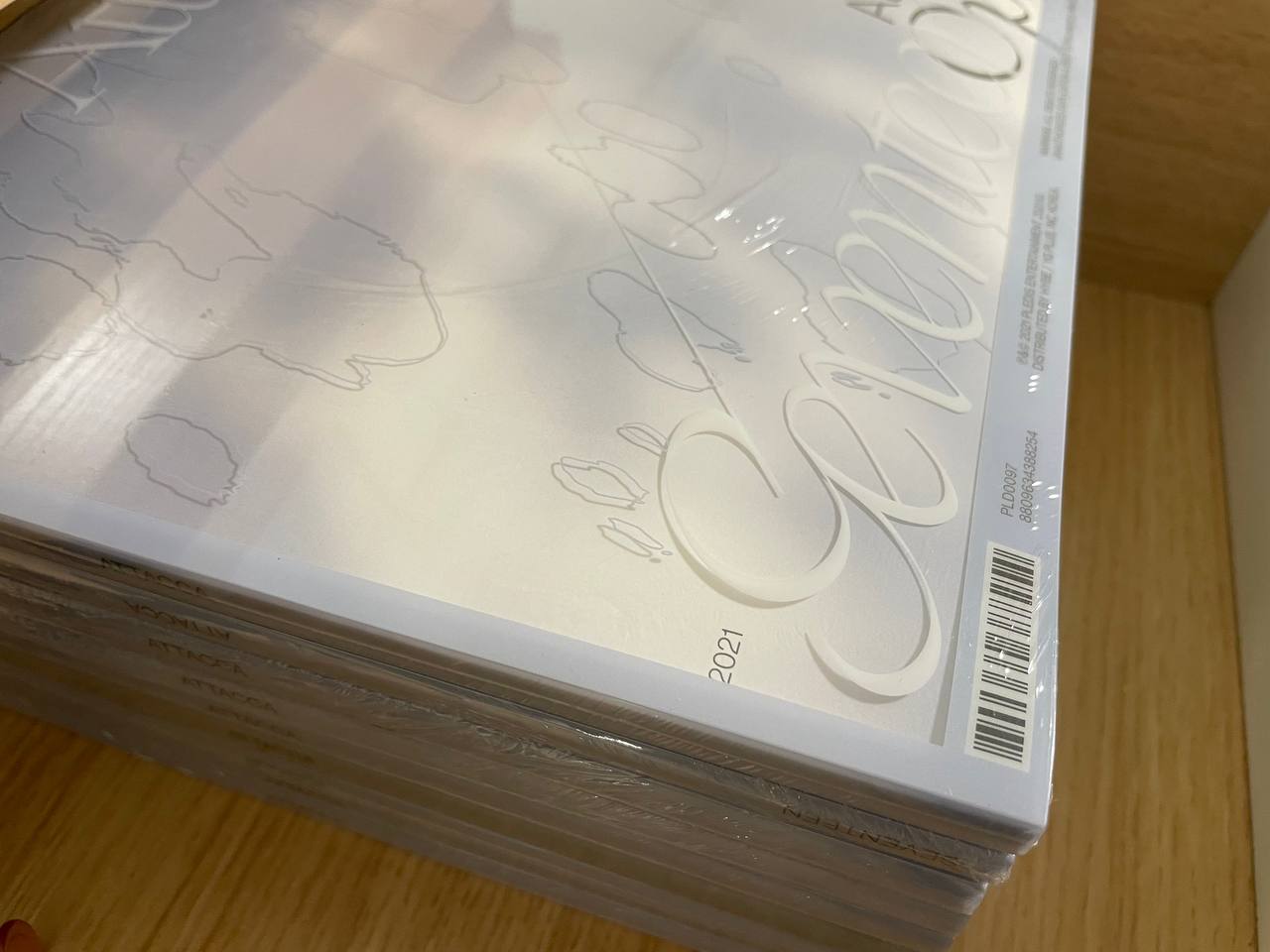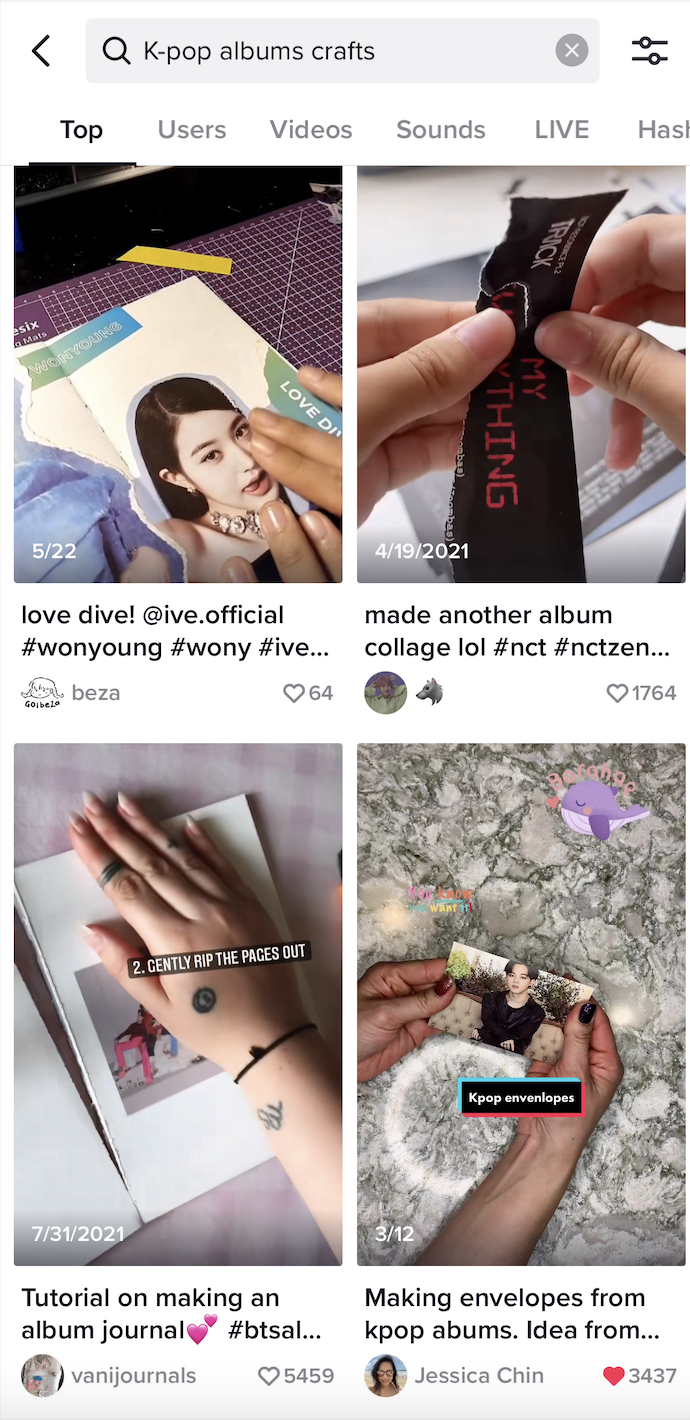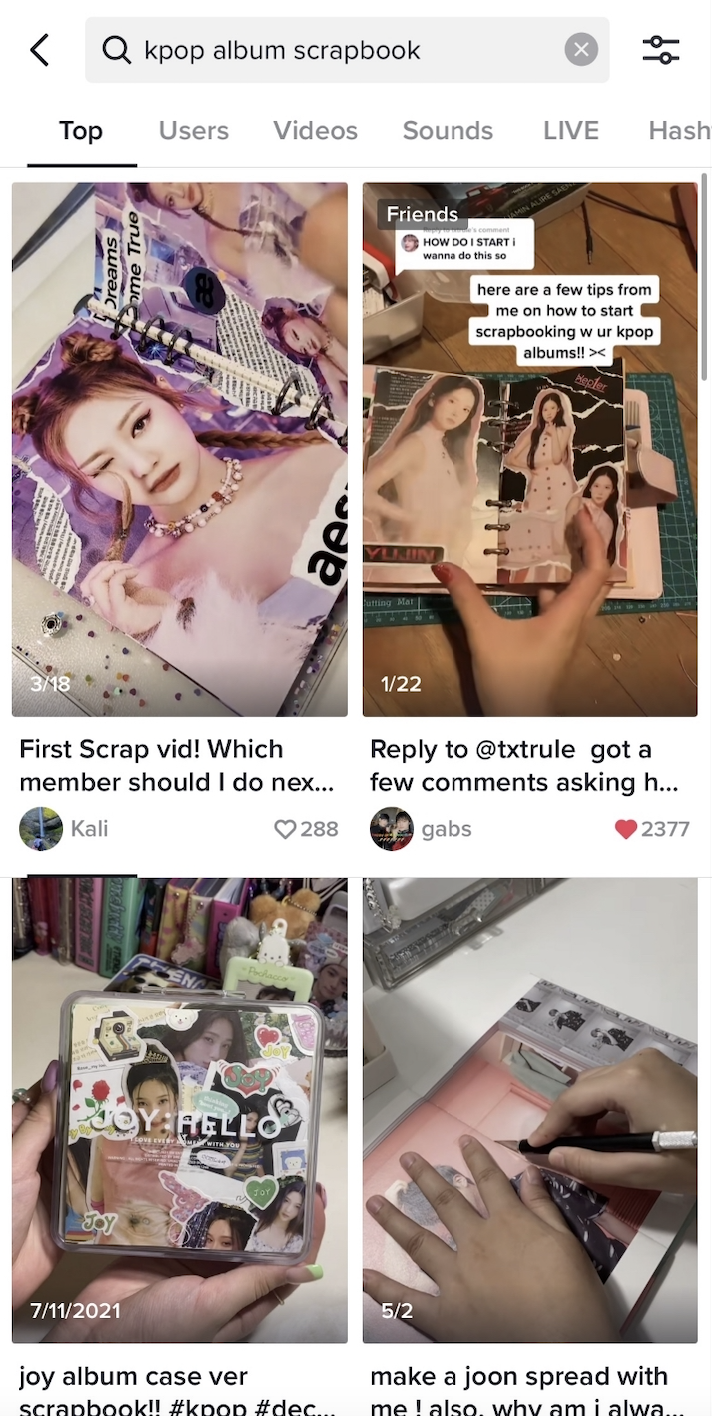K-pop Albums and Its Harmful Environmental Impact
With the exponential rise of people’s interest in Korean pop culture, MEGAN NICOLE YIN dives deeper to find out about the impacts of K-pop albums on the environment and how the industry and its fans can practice better sustainability habits.
Korean entertainment companies frequently produce physical albums whenever a soloist or band has a comeback (releasing a new song or album). Photo by Megan Nicole Yin.
BY
Megan Nicole Yin
Section Editor
Hype Issue #55
Published on
June 9, 2022

In recent years, there has been an increase in physical albums being mass produced by Korean entertainment companies due to the constant rise of popularity of Korean idol groups and soloists, known as the Hallyu wave.
A regular K-pop album usually consists of a Compact Disc (CD), CD holder, photobook and exclusive photocards. According to Yonhap News, from 2019 to 2021, the number of sales of physical albums increased tremendously. In 2021 alone, there were a total of 57 million sales made, a stunning 9.3 million more than in 2020.
During the pandemic, fan benefits such as fansigns through video calls became more accessible globally. The higher the number of albums purchased from official websites, the more likely fans could get a video call with their idol through a lucky draw system. This caused more K-pop fans around the world to mass purchase albums.
“Once [Covid-19] started, a lot of artists were having fansigns via (Korean online chatting platforms) Kakao or Line. They allowed a lot of international fans to join because they offered global shipping, or international payment methods. If I could speak to the K-pop idols, I thought that it would be quite fun because I’d never done it before,” says Ms Cristabel Chong, 21, who bought 43 albums to try her luck for K-pop group, Seventeen’s, fansign.
She mentioned that since there are limited slots available, many fans would purchase hundreds of albums in hopes of getting a chance to chat with their favourite idol, even if it was for only 1 minute and 30 seconds.

“Many people post their fancalls with the idols on social media, especially if they are selected to join these fansigns regularly. These idols remember these fans, so it tempts other fans to want to enjoy that too,” says Ms Chong. Photo courtesy of Ms Cristabel Chong.
However, this huge volume of physical album sales has sparked environmental concerns. Due to the mass purchasing of albums to gain fansigns or to collect photo cards, fans are often unable to sell all their spare albums, even if they’re sold at discounted prices. Globally, fans will either throw away or leave unwanted albums on the street for others to take for free.
In Korea, it is common for fans to only buy albums for idols’ special photo cards and afterwards, leave them unsealed in boxes with the label, “Please take one” written on the boxes in Korean. Photo taken from Koreajoongangdaily (left) and Allkpop (right).
Ms Ho Yi Dan, 23, an environmental activist and Art Design Media graduate with a minor in environmental sustainability from Nanyang Technological University, said that entertainment industries need to think about K-pop fans’ consumer habits when producing such merchandise.
“The albums are not made of materials that can easily be sent… to be recycled. So at the end of the day, they get incinerated instead. The production doesn’t take into consideration what happens after the album is used, or whether they even get used. They need to consider this from the start: how the albums would be disposed of [and] how they can harm the environment,” she said.
Because of this, some K-pop fans and entertainment companies are trying to create a change in caring more about the environment.
On TikTok, using spare or old K-pop album photobooks to create scrapbooks and other crafts is a trend.
Many have taken the initiative to teach others how to make aesthetic scrapbooking journals from their albums. Screenshot taken from TikTok by Megan Nicole Yin.
“It’s more of an enjoyable process, and you’re able to make use of the album that you paid for in more ways than just looking at the [photobook] once and leaving it on your shelf,” said Ms Gabrielle Ong, 21, a TikToker who does album scrapbooking.
Ms Ong wishes fans would change their mindset – rather than destroying the albums, they should give the albums a new life by trying album scrapbooking.
“I would figure that these fans would have a surplus of albums. It won’t be that scary to tear apart the album… I understand that there’s nothing stopping people from buying many albums to attend fansigns. If you do not want to use it, resell the albums so that other people can use them,” she said.
I understand that there’s nothing stopping people from buying many albums to attend fansigns. If you do not want to use it, resell the albums so that other people can use them.
On the other hand, other fans use the photobooks to make other types of crafts. Ms Jessica Chia, 34, a BTS fan from New York who creates handcrafted merchandise like envelopes and coasters using BTS photobooks, said, “I wanted to come up with other ways to use the photobooks… I have a few albums and I look at the photobooks once and then they just sit on my shelf. I hate seeing all of that [go to] waste so I wanted to create something out of the photobooks.”
“I don’t look at BTS photobooks every day, but I do have a cute coaster which I use every day,” Ms Chia added.
As an environmental activist, Ms Ho understands that these methods do help the environment to a certain extent. However, she worries that buying materials to create these crafts will encourage consumerist habits.
“I think it’s amazing what people are doing out there, crafting what they already have. But I hope it doesn’t shadow reality with the fact that a lot of it is still wasted,” she said.
Besides fans, idol entertainment companies are also trying to make a difference in helping to save the environment.
IST Entertainment, the idol entertainment company of K-pop group VICTION, announced that the release of their 3rd album will be more environmentally friendly. They encouraged fans to purchase the digital copy of the albums through a link and the photocard will be mailed to them directly. This helps reduce the amount of resources used to print and package the albums.
Additionally, GOT7’s Jay B, another singer, mentioned in a live broadcast on Vlive (Korean live streaming platform) that he took steps to ensure his album was recyclable.
Idols and fans are indeed trying incorporate sustainability into their passions with methods like these, nonetheless, this group of fans and idols only make up a small percentage of the K-pop following and industry.
As physical album sales are one of the key factors that help idols gain validation and winnings from music shows, fans are encouraged to purchase physical albums to support their favourite artists. This leads to the creation of waste. However, since digital album streaming and live votes are alternative ways that fans can help their idols gain winnings, perhaps it’s time for Korea to go digital to prevent consumers’ wasteful buying of physical albums.
“The root problem would not be [with] the entertainment companies but [instead] … with the entertainment industry and the people leading the entertainment competitions… Physical sales can still exist but it should not be the way of winning,” Ms Ho said.
The root problem would not be [with] the entertainment companies but [instead]… with the entertainment industry and the people leading the entertainment competitions… Physical sales can still exist but it should not be the way of winning.
“The voting methods should be sustainable. It shouldn’t fall back to the consumers … naturally when demand drops, prints will drop,” she added.
While there are efforts made by the community to adopt better sustainability habits, I guess only time will tell if the industry can change to make their marketing more profitable with an increasingly environmentally sensitive fan base.







미용실고객관리프로그램, 무료고객관리,이미용,미용실,네일,피부,미용,애견,타투, 고객관리프로그램
스포츠중계 해외축구중계 nba중계 mlb중계 해외축구중계사이트 일본야구중계 EPL중계 프리미어리그중계 무료스포츠중계 해외스포츠중계 메이저리그중계, 스포츠365
relaxing jazz bgm
Your point of view caught my eye and was very interesting. Thanks. I have a question for you. https://accounts.binance.com/ar/register-person?ref=V3MG69RO
water sounds